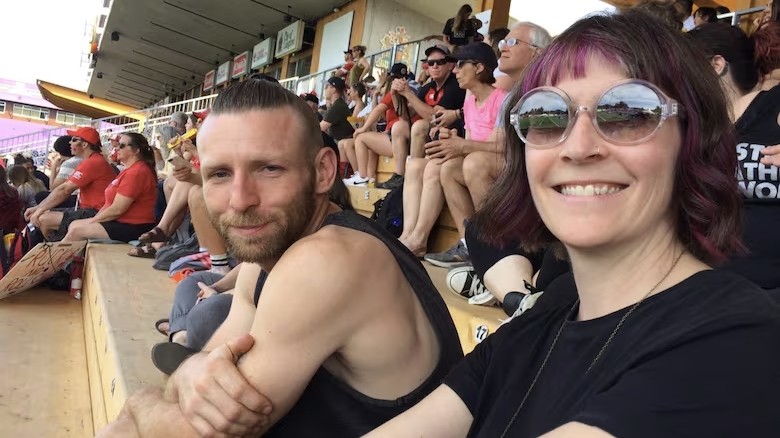Sister of B.C. Man Lost to Toxic Drugs Launches Peer Support Group for Siblings
Emma MacLeod
1/9/20252 min read


It was May 2020, early in the COVID-19 pandemic, when Stephanie Harrington received devastating news: her 39-year-old brother Ian had died after using toxic drugs.
In the months that followed, as she grappled with grief, Harrington recognized a gap in support for siblings mourning loved ones lost to the overdose crisis.
“Those first few months after losing someone are just so intense,” Harrington said. “You’re just trying to get through them.”
Now, nearly five years later, Harrington is taking action to fill that gap. She’s launching a peer support group in Victoria specifically for siblings who have lost family members to toxic drugs. The group’s first meeting is scheduled for Jan. 13, 2024, with the support of Healing Hearts Canada, an organization that connects grieving families with support networks.
A Unique Kind of Grief
Harrington’s journey with grief led her to connect with Moms Stop the Harm, a bereavement and advocacy group focused on families affected by substance use and toxic drugs. While she found relief in its community, she noticed the focus was largely on parents grieving the loss of children.
“It’s one of our earliest formative relationships,” she said of sibling bonds. “My brother was just a year or so younger than me. He was around my entire life. These are really important relationships.”
Harrington explained that siblings often play unique roles in supporting each other through substance use struggles. They might shield parents from the full extent of a sibling’s challenges or provide emotional support that others don’t see. This dynamic often leaves siblings navigating complex feelings of guilt, responsibility, and isolation.
“Sometimes siblings don’t express their grief out of concern for what their parents are going through,” she added.
Creating a Space for Healing
Harrington’s group will provide a non-judgmental environment for people to share their experiences and honor their loved ones. The sessions will be free to attend, thanks to Healing Hearts Canada.
“When people die of toxic drug deaths or substance use-related harms, they’re very stigmatized deaths,” she said. “Being in a room with others who’ve experienced similar losses was a huge relief for me.”
Harrington also sees the group as part of her own healing journey:
“Part of the healing process for me is spending time with that grief and remembering my brother. I hope this group offers others the same comfort and support I found when I first lost him.”
A Growing Need for Support
With B.C.’s toxic drug crisis showing no signs of abating, initiatives like Harrington’s reflect a growing demand for tailored support services. Since Ian’s death in 2020, thousands of British Columbians have lost their lives to toxic drugs, leaving behind grieving families and communities.
Harrington hopes her group will not only support siblings but also bring attention to the unique and lasting impact of sibling loss.
“It’s about more than just grief—it’s about creating a space where people can feel seen and understood,” she said.
News
Stay updated with the latest BC news stories, subscribe to our newsletter today.
SUBSCRIBE
© 2025 Innovatory Labs Inc.. All rights reserved.
LINKS
